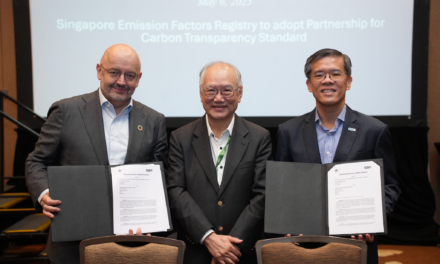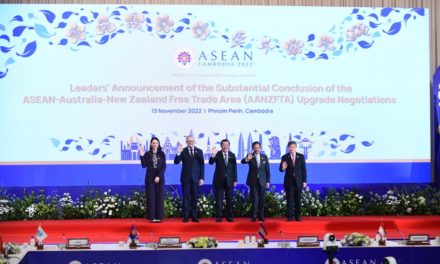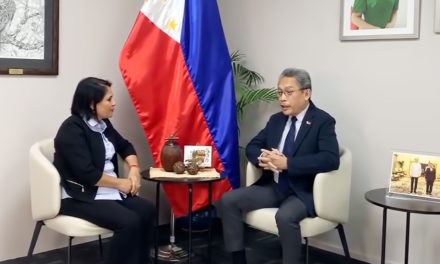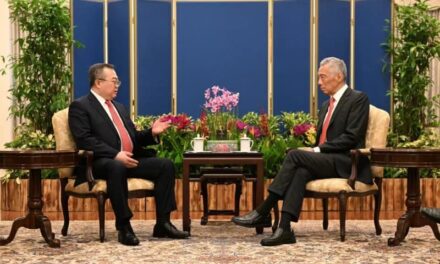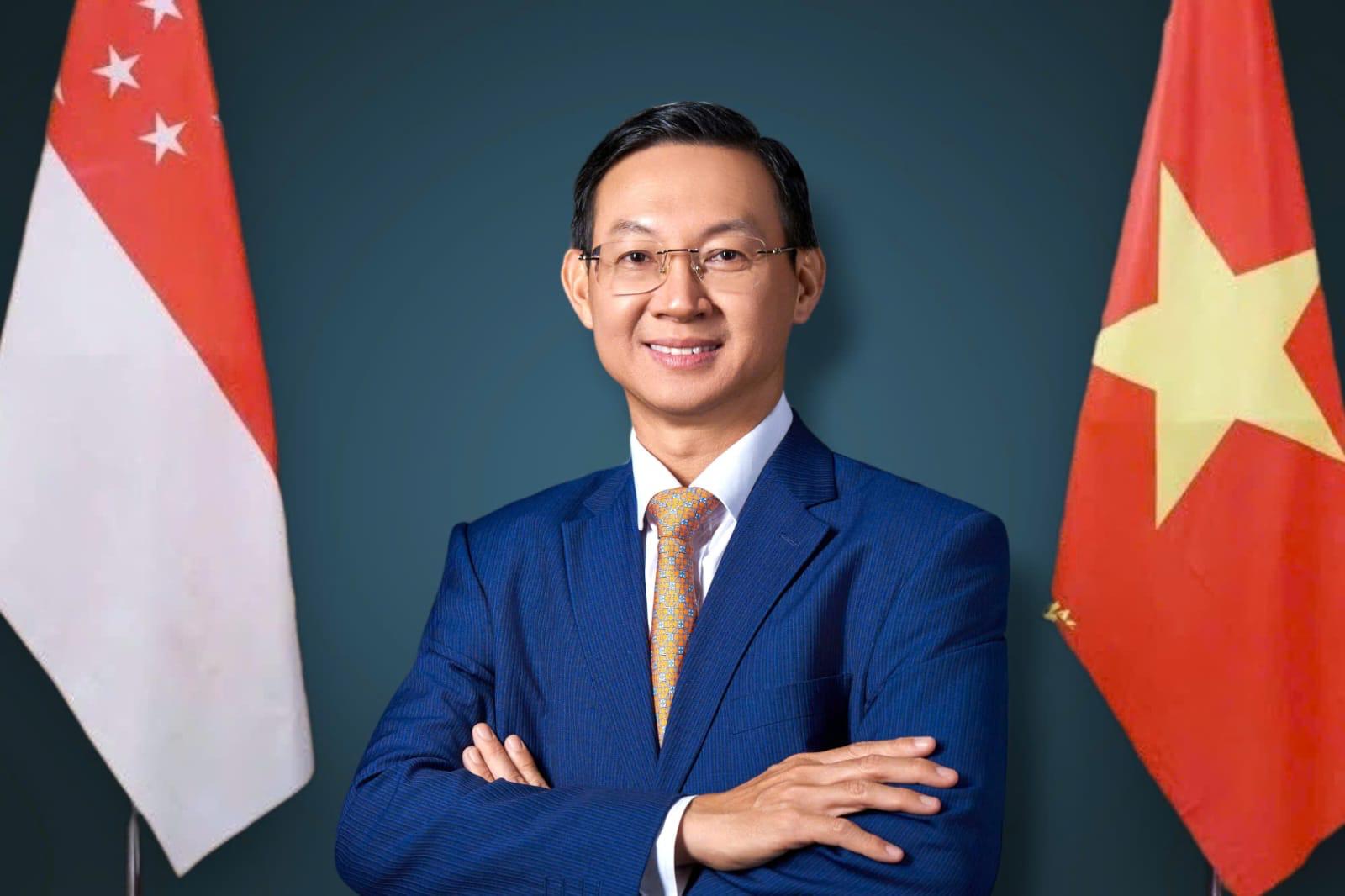
Ambassador Tran Phuoc Anh speaks to IN Diplomacy on the latest visits and accelerated pace of Singapore-Vietnam ties
Singapore, 21 March 2025 – In an exclusive interview with IN Diplomacy, H.E. Tran Phuoc Anh, Vietnam’s Ambassador to Singapore, shared insights into the recent official visit of H.E. To Lam, General Secretary of the Communist Party of Vietnam, and the evolving Vietnam-Singapore relationship. The visit, which took place from 11 to 13 March 2025, marked a historic milestone as both nations elevated their ties to a Comprehensive Strategic Partnership (CSP), reinforcing their commitment to deepening cooperation across multiple sectors.
Q: Congratulations on General Secretary To Lam’s recent official visit to Singapore. Could you share the key outcomes of the visit and any agreements that were signed?
The official visit of H.E. To Lam, General Secretary of the Communist Party of Vietnam, to Singapore from March 11th to 13th, 2025, marked a historic milestone in bilateral relations. The most significant outcome was the elevation of Vietnam-Singapore ties to a Comprehensive Strategic Partnership (CSP), the highest level of diplomatic relations for Vietnam. This makes Vietnam the first ASEAN country to establish a CSP with Singapore, while Singapore became Vietnam’s third ASEAN CSP partner after Malaysia and Indonesia. This upgrade reflects the deep political trust between the two nations and their shared commitment to strengthening cooperation across various sectors, further reinforcing their importance in regional and global affairs.
During his visit, General Secretary To Lam delivered a political address at the Lee Kuan Yew School of Public Policy, emphasizing Vietnam’s determination to achieve breakthrough advancements in science, technology, and innovation. His speech highlighted Vietnam’s vision for the future and presented significant opportunities for Singaporean and international investors in these emerging sectors. The visit also saw the signing of seven key Memoranda of Understanding (MOUs) and agreements to bolster cooperation in critical areas. These include digital transformation, transnational crime prevention, offshore wind power trade, Vietnam-Singapore Industrial Parks (VSIPs), and financial collaboration.
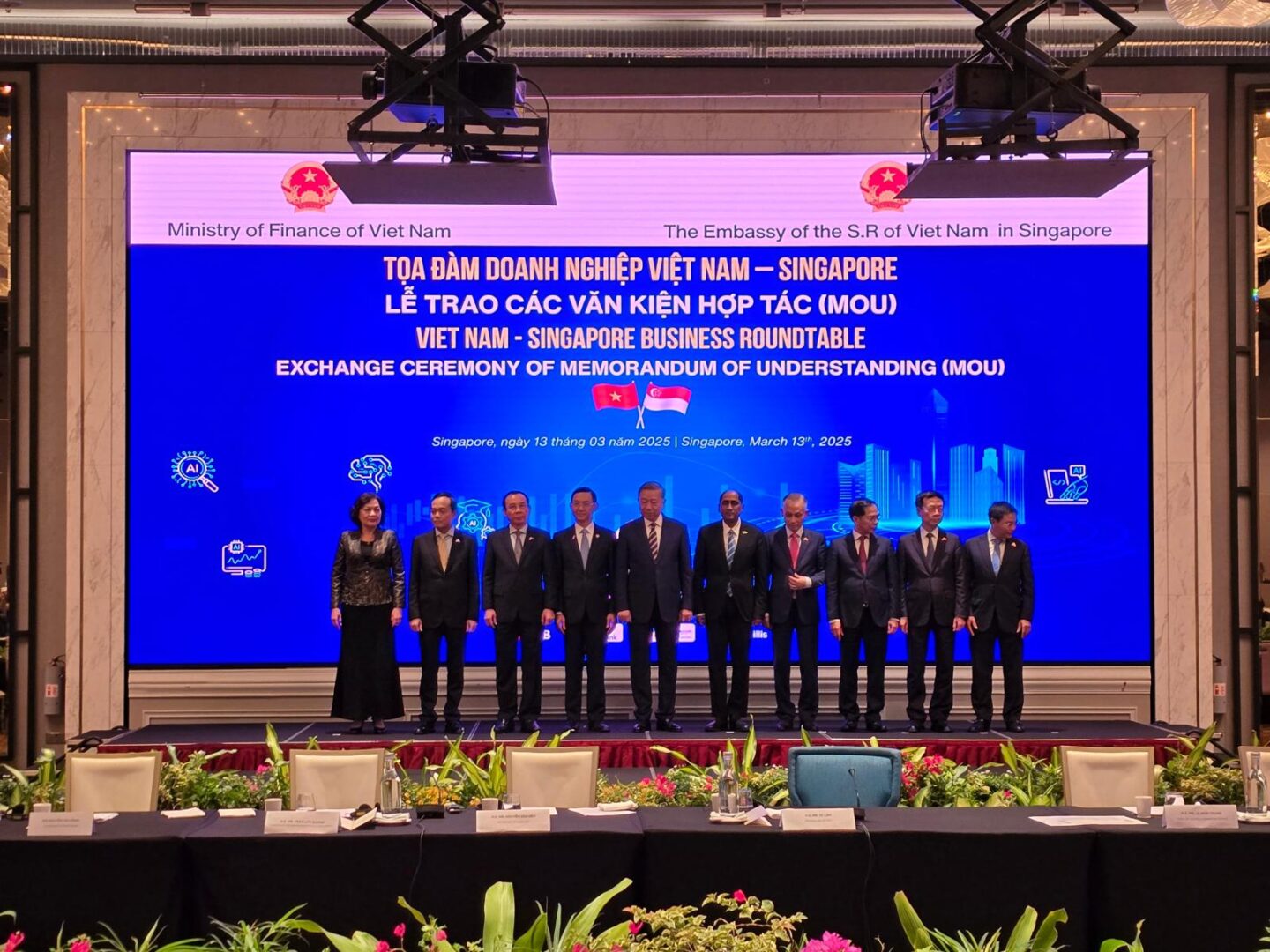
Among the notable agreements, an MOU on digital transformation will enhance cross-border data policies, while a security cooperation deal will strengthen efforts to combat transnational crime. In the energy sector, a joint report was endorsed to facilitate offshore wind power trade, beginning with Vietnam’s exports to Singapore. Additionally, approvals were granted for two more VSIPs, expanding the total to 20 across 14 provinces in Vietnam. Meanwhile, financial cooperation between the Monetary Authority of Singapore and the State Bank of Vietnam will enhance payment connectivity and FinTech operations in both markets. These agreements underscore the growing depth of Vietnam-Singapore relations, paving the way for strengthened strategic collaboration in the years ahead.
Q: Vietnam and Singapore have strong ties in investment, trade, and people-to-people exchanges. How do you see these areas evolving during your tenure as Ambassador to Singapore, and what are your key priorities in strengthening bilateral cooperation?
I firmly believe that these key areas will continue to evolve, and the Embassy will play an active role in making them a reality over the next three years. Singapore, currently the second-largest foreign investor in Vietnam with an accumulated investment capital of US$84 billion and nearly 4,000 projects, is well-positioned to become the largest. With new areas of strategic cooperation under the Comprehensive Strategic Partnership (CSP)—including renewable energy, semiconductor manufacturing, AI-driven industries, cross-border data flows, and fintech collaboration—investment from Singapore is expected to grow further. Additionally, the expansion of Vietnam-Singapore Industrial Parks (VSIPs) will strengthen economic ties and create more opportunities for businesses from both countries. Trade between Vietnam and Singapore is also projected to increase, with a targeted annual growth rate of at least 10%. By 2028, bilateral trade could reach US$30 billion, driven by Vietnam’s rise as a regional manufacturing hub and Singapore’s diversification of imports. The Embassy will continue to facilitate this growth by organizing trade missions, business forums, and startup exchanges to attract Singaporean small and medium-sized enterprises (SMEs) and multinational corporations to Vietnam.
Beyond economic cooperation, people-to-people and educational exchanges will play a crucial role in strengthening bilateral relations. With 19 daily flights and a growing Vietnamese community of 25,000 in Singapore, interactions between the two nations are set to deepen. The Embassy will focus on promoting scholarships, joint academic programs, and student and official exchanges between universities and institutions. Additionally, tourism and cultural ties will be fostered through joint initiatives such as Vietnamese-Singaporean cultural festivals, culinary events, and collaborations in fashion and the arts. In summary, Vietnam-Singapore relations have never been stronger, and during my tenure, I am committed to turning commitments into tangible outcomes that will enhance economic, technological, and cultural ties for the mutual benefit of both nations.
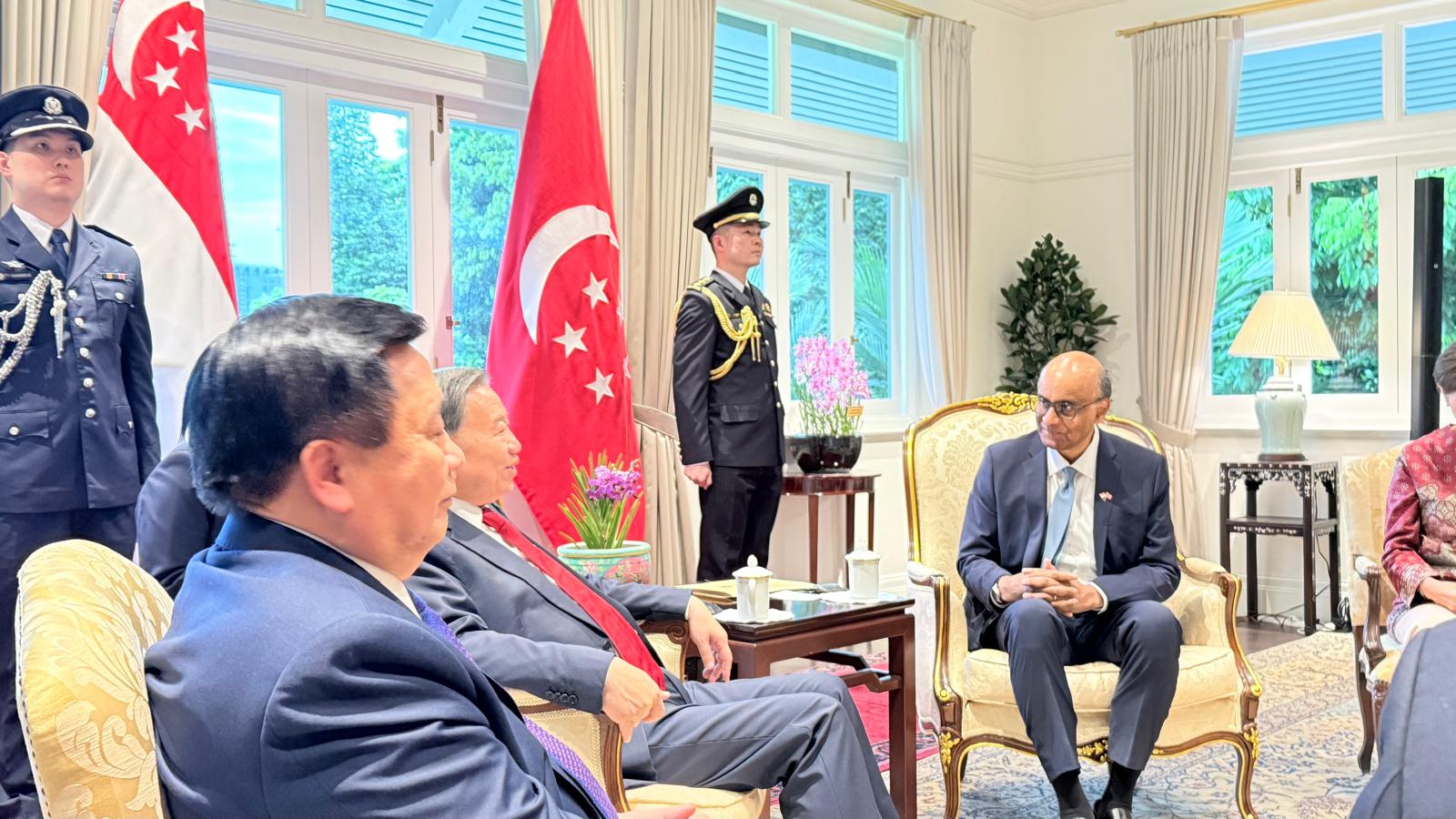
Q: How would you describe the current relationship between Vietnam and Singapore?
It is very strong and has lots of room to grow further.
Q: What do you consider the most significant achievements in Vietnam-Singapore relations over the past 50 years?
Vietnam and Singapore have built a strong, dynamic, and strategic partnership over the past 50 years, evolving from early diplomatic ties in 1973 to a Comprehensive Strategic Partnership in 2025. In that span of time, there are several achievements in the areas of investment and trade cooperation, energy & sustainability collaboration, security and defense cooperation, but for me, the most significant one is educational and cultural exchanges.
Since the opening of the Vietnam Embassy in Singapore in 1992, up to now, more than 21,000 government officials of Vietnam have been trained in the framework of the Singapore Cooperation Program. Every year, two cohorts of high-level officials from the Communist Party of Vietnam come to Singapore for short-course training. Numerous scholarships, exchange programs, and joint research projects between universities, institutions of the two countries have given favorable conditions for educational exchanges. Apart from these, about 10,000 Vietnamese students are now studying in Singapore, benefiting from its world-class education system. Singapore is one of the top travel destinations for Vietnamese tourists, and vice versa, with nearly one million visitors per year between the two countries. In 2023, the two nations celebrated 50 years of diplomatic ties and 10 years of strategic partnership with cultural festivals, exhibitions, and leadership exchanges. Particularly, during the General Secretary To Lam’s visit in March 2025, an orchid hybrid “Papilionanda To Lam Linh Ly” was named in honor of General Secretary Lam, his wife, and their daughter, symbolizing the deep bond between the two nations.
Q: Singapore is one of the biggest investors in Vietnam. What areas of investment have been growing, and what opportunities do you see ahead?
Singapore has firmly established itself as one of the largest foreign investors in Vietnam, with investments spanning diverse sectors. As of 2024, Singaporean companies have injected over USD 84.3 billion into nearly 4,000 projects across 52 out of 63 provinces in Vietnam, making a significant contribution to the country’s foreign direct investment (FDI). Key investment areas include manufacturing, liquefied natural gas (LNG) energy projects, real estate development—including serviced apartments, luxury condominiums, hotels, commercial centers, and logistics hubs—industrial infrastructure such as Vietnam-Singapore Industrial Parks (VSIPs), as well as healthcare services and pharmaceuticals. The recent upgrade of bilateral ties to a Comprehensive Strategic Partnership (CSP) opens doors for even greater collaboration in emerging sectors.
Looking ahead, Vietnam’s fast-growing digital economy presents attractive investment opportunities. With a tech-savvy population and a rapidly digitizing economy, Singaporean investors are already active in fintech, e-commerce, and software development. Meanwhile, the green economy is set to become a major focus, with Southeast Asia projected to generate around USD 1 trillion in sustainable development opportunities by 2030. Singapore and Vietnam’s shared commitment to sustainability paves the way for stronger cooperation in renewable energy and green infrastructure. Additionally, Vietnam’s urbanization drive creates demand for smart infrastructure, where Singapore’s expertise in urban planning and smart city solutions can play a crucial role.
As Southeast Asia’s digital economy is expected to reach USD 1 trillion by 2030, Singaporean companies have the potential to enhance Vietnam’s digital transformation through investments in artificial intelligence (AI), cybersecurity, and digital finance. With Singapore’s strategic investments fostering robust economic ties, the newly strengthened CSP sets the stage for deeper engagement in key sectors such as green energy, digital transformation, and advanced infrastructure development. These areas promise dynamic growth and long-term collaboration between the two nations.
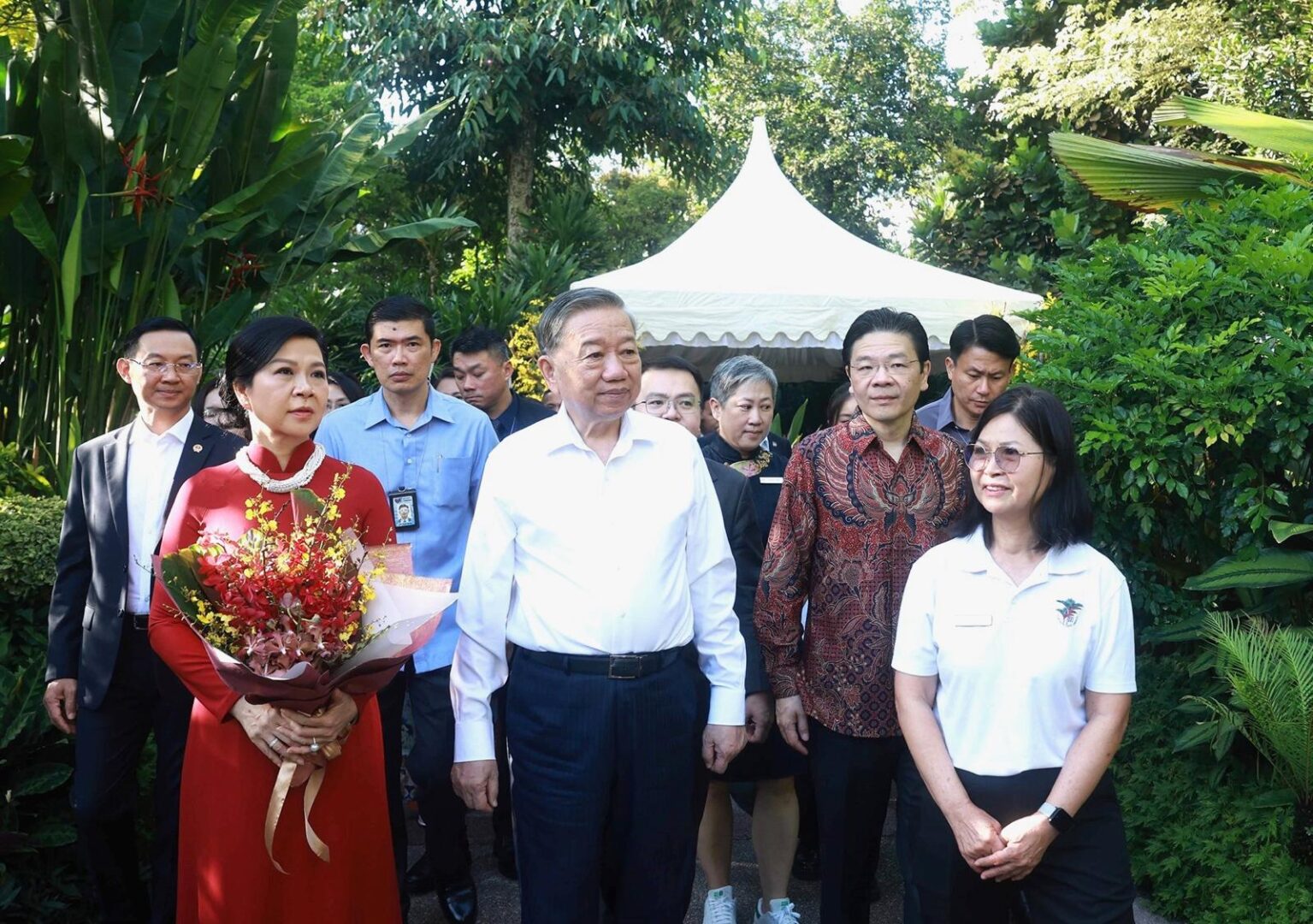
Q: Vietnam-Singapore Industrial Parks (VSIPs) have been a major part of economic ties. How have they contributed to Vietnam’s development, and what’s next for this partnership?
Vietnam-Singapore Industrial Parks (VSIPs) have been a flagship cooperation project between the two nations since their inception in 1996 in Binh Duong province. Up to now, there are 18 VSIPs across 13 provinces of Vietnam. 2 more are coming as an outcome of the General Secretary’s visit in March, raising the total of 20 VSIPs in Vietnam. These industrial parks have significantly contributed to Vietnam’s industrialization and economic growth. The existing VSIPs have attracted more than US$ 18.7 billion in investments, accommodated over 866 tenant companies, and created approximately 300,000 jobs in various sectors. As they are located across northern, central, and southern Vietnam, VSIPs have facilitated balanced regional development, integrating local economies into global supply chains.
The prospects for the VSIP partnership are strong. More parks will be coming, envisioned to be “new generation” with smart and sustainable features such as low carbon footprints, rooftop solar systems, and real-time monitoring of energy, water, and waste usage. This aligns with global trends towards sustainable industrial development. The integration of advanced technologies, including Internet of Things (IoT) applications, aims to enhance operational efficiency, safety, and reliability within the parks. This technological shift supports Vietnam’s move towards Industry 4.0.
Q: Beyond trade and investment, what are some areas where Vietnam and Singapore are working together, such as education, technology, or sustainability?
In fact, Vietnam and Singapore are working closely together in all these areas: education, technology, and sustainability. These are considered long-term, strategic areas of cooperation for both nations. Leaders of both Vietnam and Singapore believe that our national economies cannot grow fast and sustainably without good people, advanced technology, and a sustainable way. They have prioritized, stressed the importance, and allocated resources for these areas to grow further.
Q: Are there any exciting new collaborations or projects between Vietnam and Singapore that you can share?
There are several projects both sides are collaborating. One of them is the offshore wind power project in the South of Vietnam that both sides are actively exploring the feasibility of. This is a mega project of strategic importance as it will bring substantial benefits for both sides regarding energy security and sustainable growth.
Q: For Singaporeans interested in visiting or doing business in Vietnam, what advice would you give them?
I would say that patience is necessary. Opportunities are abundant in Vietnam, especially in the new areas such as innovation, digital transformation, renewable energy, carbon credit trading, and financial services. However, because they are new, the regulatory framework may not be in place or up to date yet. Therefore, investors may need to be patient, keep working closely with local authorities and partners to get things done. You can be confident that Vietnam is now entering a new era of advancement. The whole country is like on a roller coaster, ready to move forward fast, to reach the two 100-year goals (2030 of the Communist Party establishment and 2045 of the national founding)
Q: Likewise, what would you say to Vietnamese people looking to explore opportunities in Singapore?
Singapore is small, yet big. You can find everything here. It is the international hub, so most of the major multi-national corporations establish their presence and operation here. Singapore survives and develops on constant innovation and bold ideas, so Vietnamese businesses, people can always find opportunities in Singapore. But you need to play by the rules. Everything is well established and in good order, so stick to it.

